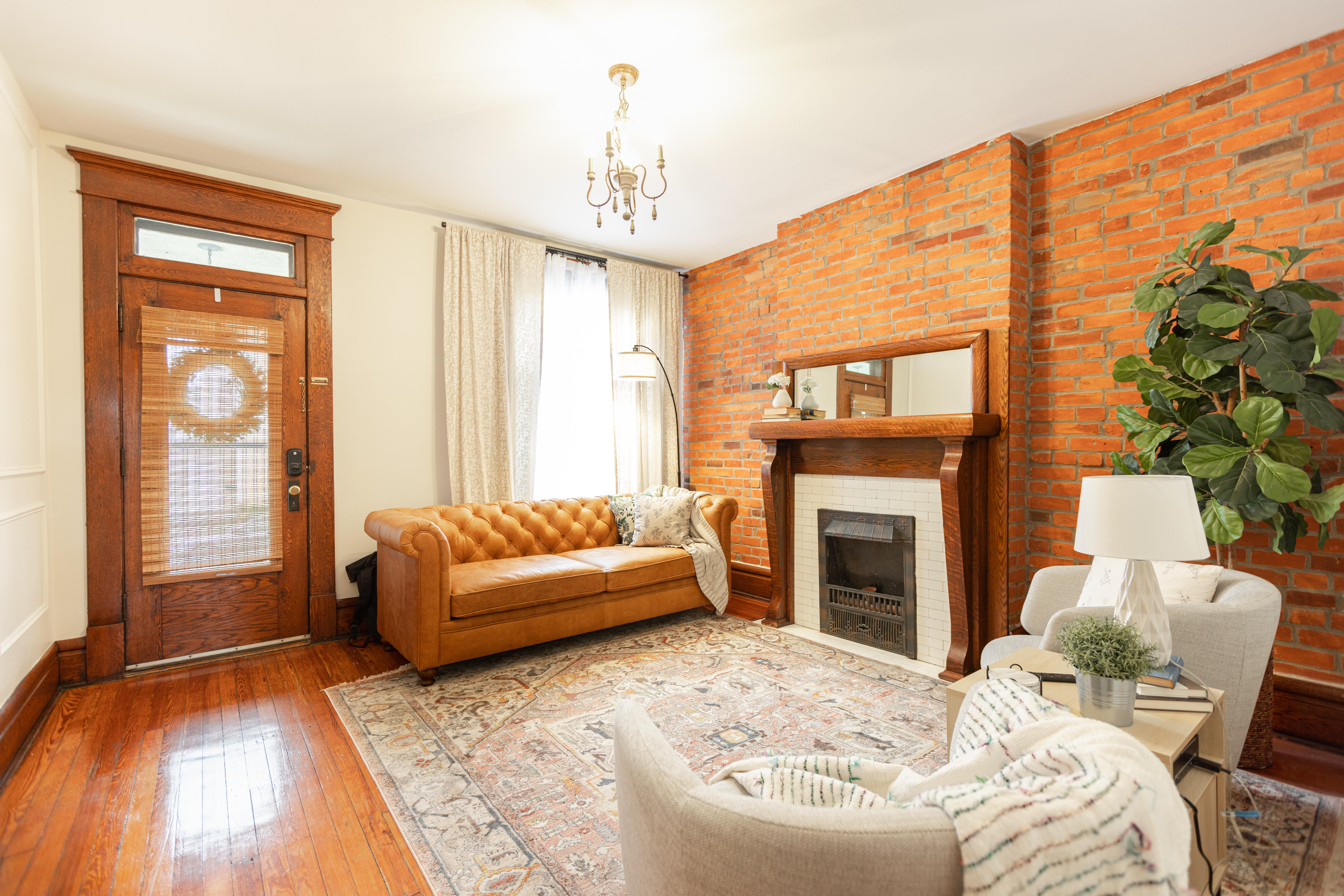
A Complete Guide for Airbnb Hosts
Does the thought of Airbnb neighbor complaints give you a pit in your stomach? You’re not alone. That worry about what will happen when the next guest checks in is real.
Is this the time the neighbor calls the city and things get awkward? It’s a common fear for hosts. Today, we are sharing exactly how to keep the peace and what to do when facing Airbnb neighbor complaints.
We’ve rounded up all of our Airbnb Hosting Must-Haves right here in our Amazon Store. Click here to grab everything you need to curate your property and start earning 5-star reviews.
Table Of Contents:
- Why Your Neighbors’ Opinions Actually Matter
- The First Step: Just Go Say Hello
- How to Effectively Manage Airbnb Neighbor Complaints
- Your House Rules Are Your Best Friend
- When a Complaint Happens Anyway
- Standing Your Ground with a Difficult Neighbor
- Conclusion
Why Your Neighbors’ Opinions Actually Matter
You need to understand why these relationships are so important. This applies whether your rental is in a busy city or a quiet, rural spot. Good community relations are a fundamental part of running a successful short-term rental business.
Your property is a business, but it operates within a living neighborhood. People are raising families and have made huge investments in their homes. Ignoring their comfort and peace of mind is a recipe for disaster.
You worry about getting bad guests, right? Your neighbors have those same worries, amplified. They have seen news stories about parties, overflowing trash, and cars blocking driveways, giving them reason to be wary of strangers next door.

The First Step: Just Go Say Hello
The best advice is often the simplest: go meet your neighbors. If you can do this before you even purchase the property, that’s a massive advantage. This is one of the most effective proactive measures you can take.
Trying to fly under the radar is an outdated and risky strategy. Instead, you want your neighbors to understand and even support what you are doing. Show them you plan to maintain the property meticulously and that you are a responsible operator.
Explain that your guests will support local businesses and bring value to the area. This is your opportunity to set a positive tone. Give them your direct phone number so they know you are just a text or call away if a concern arises.
Building That Initial Trust
It’s an old-school move that builds a bridge. Simply knock on their door and introduce yourself with a friendly smile. Be completely transparent about your plans to operate a short-term rental from the very beginning.
Exchanging phone numbers is a powerful gesture. When you offer your personal number, it immediately lowers defenses and shows you are accountable. It proves you have nothing to hide from them.
I suggest putting your number directly into their phone and sending them a text right then. This confirms they have your contact information saved. If you have a team, such as a co-host or cleaner, you can provide that number as a backup for emergencies.
I also recommend addressing potential concerns directly. You could say, “I know you may have heard some horror stories about vacation rentals. I want to assure you that I am committed to making this property a wonderful addition to our neighborhood.”
This opens a dialogue and allows you to address their fears head-on. Ask if they’ve ever stayed in a vacation rental themselves to help them relate. This simple question can build a personal connection and shift their perspective.
As a final gesture, offering a friends-and-family discount can be a nice touch. It shows goodwill and can be a practical solution if they ever need extra space for visiting family. These small efforts are excellent property management tips for long-term harmony.
How to Effectively Manage Airbnb Neighbor Complaints
Nuisance prevention begins long before a neighbor has a reason to be upset. It starts with the type of guests you attract and allow into your home. This requires a solid system for guest alignment, making certain they are a great fit for your property and the local area.
Your actions must align with your words. If you promise your neighbors you will be available, you must answer your phone when they call. Maintaining this integrity is critical for long-term success.
It’s About Guest Alignment, Not Vetting
Let’s clarify what “vetting” means in this context. It is not about discrimination in any form. It is a process of guest alignment, where the goal is to match the right guest with the right property.
Your listing description is your first and most powerful tool. Be brutally honest about your property’s characteristics, both good and bad. For instance, my partner and I own a townhome with shared walls on both sides.
We are upfront about this in our listing. We mention that guests might occasionally hear the neighbor’s pugs or notice another neighbor smoking on their porch. This helps set accurate expectations from the start.
A guest planning a small party would see our cozy dining area and limited space and realize it is not suitable. This type of honest marketing naturally attracts the right guests. It also deters those who would likely create problems for your vacation rental community.
Educating Your Guests on Being a Good Neighbor
Don’t dismiss a guest just because they are new to the platform and lack reviews. A new user might simply need some guidance on the etiquette of staying in a residential neighborhood. Your guest communication can set the proper tone.
Send a polite message explaining your property’s specific situation. You might say, “Just to confirm you saw this in the listing, our home is a townhome with shared walls. It’s a wonderful fit for guests looking for a quiet stay.”
This frames the rules as a benefit to them, contributing to a peaceful experience. Even if you use Instant Book, you maintain control. Our teams are trained to review every Instant Book reservation and reach out to the guest.
You can still engage in a conversation after the booking is confirmed. If you review their profile and feel there’s a misalignment, a phone call can clarify their plans. If it’s clear the property is not a good fit, you can suggest they cancel.
Your House Rules Are Your Best Friend
All your communication must be supported by your written house rules. This is where you formally outline your expectations for everything from noise levels to parking. These rules define your host responsibilities and guest obligations.
Think of them not just as rules, but as essential boundaries. They protect you, your investment, and your relationship with your neighbors. Write them clearly and concisely, avoiding an aggressive or all-caps tone.
Clear house rules offer a layer of protection. If a guest feels they are being treated unfairly, you can refer back to the rules they agreed to. This demonstrates that your actions are based on established guidelines visible to everyone before booking.
While some guests may not read them thoroughly, they are indispensable when you need them. Having well-defined house rules is a key differentiator between successful hosts and those who struggle with constant issues.
Here are some examples of what to include:
| Rule Category | Example Phrasing |
|---|---|
| Noise | Please be mindful of our neighbors and observe quiet hours from 10 PM to 8 AM. Our home is equipped with a noise monitoring device to help maintain a peaceful environment. |
| Parking | Please park only in the designated spot(s) marked in your check-in photos. Do not block the neighbor’s driveway or park on the grass. |
| Trash | Trash and recycling bins are located on the side of the house. Please follow the instructions in the welcome book for sorting and disposal. |
| Events & Parties | Parties and events of any kind are strictly prohibited. Unregistered guests are not permitted on the property at any time. |
| Local Guests | For security reasons, we do not accept bookings from local residents without prior communication and approval. Please message us before booking if you live in the area. |
Focus on the Big Three: Noise, Trash, and Parking
The overwhelming majority of Airbnb neighbor complaints stem from three core issues. You should develop a specific, proactive plan for each of them. This is a fundamental part of nuisance prevention.
- Parking: Define your parking rules with absolute clarity. Use annotated photos in your digital guidebook and check-in instructions to show guests exactly where to park and where they must not. Leave zero room for interpretation to avoid any neighborly disputes over vehicles.
- Trash: You must have a rock-solid system for trash and recycling. Know the pickup schedule and make certain your cleaning team takes the bins to the curb on time and brings them back promptly. Overflowing trash cans are a major visual blight and an invitation for complaints.
- Noise: Do not wait for a noise complaint to address the issue. Install a privacy-safe noise monitoring device from a company like Minut. These devices are permitted by Airbnb, measure decibel levels only, and do not record conversations.
Modern noise monitors can be automated to send a text message to a guest if the volume exceeds a preset threshold. This often resolves the issue before a neighbor is ever disturbed. You just have to disclose the device in your listing, which also serves as an effective deterrent for party-seekers.
If handling neighbor relationships feels overwhelming, you’ll love our FREE download on crafting effective Airbnb House Rules. Clear rules aren’t just for guests—they’re also your best defense when addressing neighbor concerns about noise, trash, or parking. Pairing this post with that guide will give you a complete system to prevent issues before they ever happen. Grab the House Rules template right here.
When a Complaint Happens Anyway
Despite your best efforts, you may still face a complaint. Let’s imagine a neighbor contacts you because the last guests were loud. Your immediate reaction might be to get defensive, but you must resist that urge.
First, listen actively and without interruption. Let them express their full frustration. Effective conflict resolution starts with making the other person feel heard and respected.
Second, repeat their concerns back to them to confirm your understanding. This shows you were paying attention and validates their feelings. This simple act can significantly de-escalate a tense situation.
Third, offer a sincere apology. Finally, provide a concrete solution. Explain exactly what you will do differently to prevent the issue from happening again, such as updating guest messaging or installing a noise monitor.
Going the Extra Mile After an Issue
Your work is not done after the initial conversation. After you have had a difficult interaction, a follow-up is critical. After the next guest or two has stayed, check in with that neighbor.
Ask them if things have improved. This shows you are serious about your commitment to being a good neighbor. A small gesture, like a gift card to a local cafe or a handwritten note, can also help mend the relationship.
Show them the same level of hospitality that you show your paying guests. This approach helps rebuild trust and reinforces your positive presence in the vacation rental community. It’s a small investment with a big return.
Standing Your Ground with a Difficult Neighbor
Let’s be realistic. Sometimes, you can do everything right, and a neighbor will remain determined to cause problems. There may be a time when they simply object to the existence of a short-term rental near them, no matter how well it is managed.
This is when your knowledge of local regulations and short-term rental laws becomes your most important asset. I once managed a condo where the upstairs neighbor complained about every guest, always citing noise. It was a one-bedroom unit with a two-person maximum.
After a few complaints, I installed a noise monitoring device and informed him about it. I explained how it worked and the decibel threshold I had set. Still, the complaints continued, and he eventually called the city.
The city’s licensing department contacted me, warning that another complaint could jeopardize my permit. I calmly explained that I had a noise monitor and offered to send them the data. I knew my host responsibilities and had the evidence to back it up.
I downloaded a month’s worth of reports. The data clearly showed that our guests never once exceeded the noise threshold. Armed with this objective data, the city sided with me.
I then had a firm but professional conversation with the neighbor. I presented him with the facts from the reports. I made it clear that while I wanted to be a good neighbor, the dishonest complaints were a form of harassment and had to stop, and they did.
You are responsible for your response in these moments. Even when feeling attacked, you must remain professional. Your reputation as a host depends on handling conflict with data, dignity, and a deep understanding of the local rules.
Key Takeaways
Living in a community involves navigating relationships with neighbors. These issues are not exclusive to short-term rentals; they can happen to long-term landlords or even homeowners. The key is your approach to communication and problem-solving.
Effectively handling Airbnb neighbor complaints is about clarity, proactive communication, and being a good community member. Every interaction reflects on you and the broader short-term rental industry.
Preventing these complaints protects your business and helps ensure that vacation rentals remain a welcome part of communities everywhere. Your commitment to being a responsible operator makes all the difference.
Since this post is all about protecting your property and keeping neighbor relationships strong, our Independent Contractor Agreement Template is the perfect next step. Having a clear agreement with your cleaners, co-hosts, or maintenance providers ensures everyone knows their role in preventing problems like overflowing trash or parking mishaps—before they turn into neighbor complaints. Grab your free copy here and add an extra layer of protection to your hosting business.
Happy Hosting!



show comments
HIDE comments